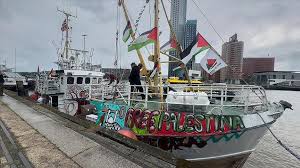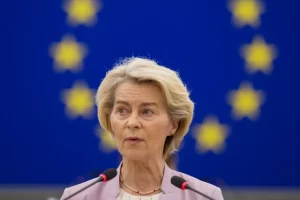EU Commission questions Belgium for suspending reception of single male asylum-seekers

Brussels: The European Commission will contact the Belgian authorities to inquire about the announcement by Secretary of State Nicole de Moor that Belgium’s Asylum Seeker Reception Agency (Fedasil) will no longer accept single male asylum seekers, the EU executive said at a press briefing.
On Tuesday, de Moor announced that single men applying for asylum would no longer be given a place to stay in the Fedasil network, without saying for how long. The network is suffering from a growing number of asylum seekers and a lack of reception places, which in any case would be reserved for families with children.
The Commission was quick to react, however, with EU Spokesperson for Home Affairs, Migration and Internal Security Anita Hipper telling a press briefing on Thursday that the Commission would be contacting the Belgian authorities on the matter.

Acknowledging that the reception situation in Belgium is “difficult”, she said that the Commission was “in close contact with the Belgian authorities and continues to support them”.
“This announcement has yet to be discussed within the Belgian government. We’ll have to see exactly what happens. The Commission will contact the Belgian authorities on the subject”, she said.
While bloc rules allow EU countries to prioritise certain asylum applications over others in exceptional cases, Belgium’s aim is to prepare for “the growing influx of families and children”, said the Belgian secretary of state, who expects a sharp increase in border crossings in the future.
In an interview on Radio 1 on Tuesday, de Moor explained that it was hard to open new centres and create new places. “As a mother of two, I’m absolutely determined to prevent children from ending up on the streets and having to sleep there.”
Belgium has also “been doing more than its share for a long time”, the State Secretary added, pointing to the unequal burden-sharing of migrants in the EU.
In 2023 for example, “19,000 asylum seekers were registered in Belgium, compared with 1,500 in Portugal, a country with a population similar to Belgium’s,” she explains.
Criticism of the decision came especially from the socialists and the ecologists, as well as from associations supporting asylum seekers, with key figures calling the measure “extremely problematic” or saying it “could lead to a new influx of homeless people into the Brussels Region”.
Tine Claus, director of the Flemish association Vluchtelingenwerk Vlaanderen also declared in an open letter to Flemish media De Standaard that she will stop cooperating with the State Secretary.
Even the Brussels region urged the federal government to reconsider, particularly as the decision to no longer receive single males would put a man at risk of homelessness or insecurity.
In March, the government adopted a new migration pact to tackle the crisis, notably by doubling the number of forced returns and creating additional reception places.
To alleviate the crisis in the long term, de Moor counts on the new EU pact on asylum and migration.
In June, an agreement was reached between EU ministers on a system providing for compulsory but still flexible solidarity between Member States in the management of asylum seekers. But its adoption still has to be discussed by the Commission, Parliament and Council.
In her press release, de Moor said she is working with other EU colleagues to finalise this pact, which “will, among other things, provide for a fast border procedure at the external borders and a fairer distribution of asylum seekers in Europe”.
The State Secretary added that deals with third countries, such as the one with Tunisia will also “contribute to a better management of migration flows and our borders”.
However, she underlines that “these things take time and will not immediately bear fruit” and that “in the coming winter we will therefore still face a complex reception situation”, stressing that she has a “clear priority for families and children”.





